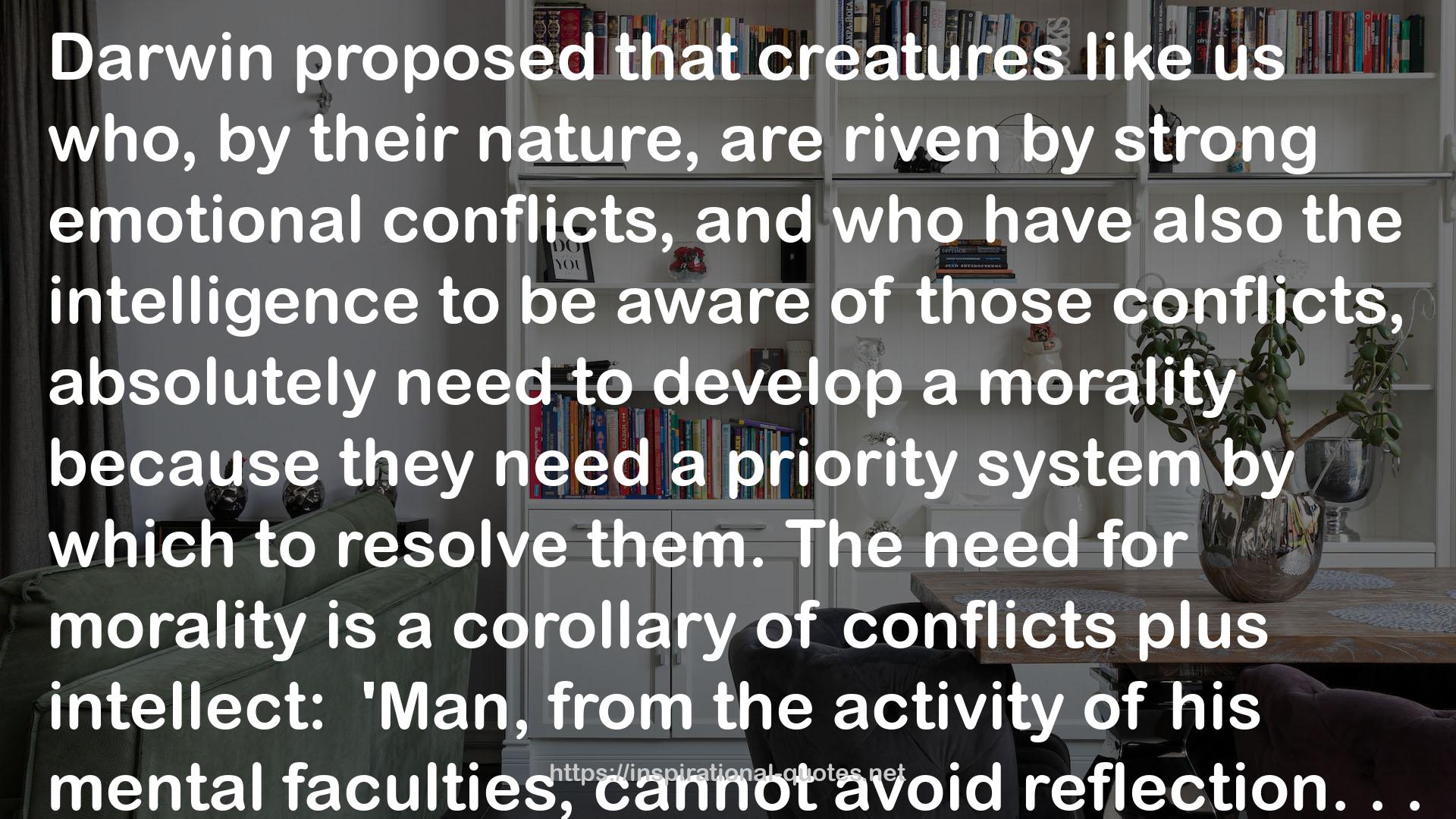" Darwin proposed that creatures like us who, by their nature, are riven by strong emotional conflicts, and who have also the intelligence to be aware of those conflicts, absolutely need to develop a morality because they need a priority system by which to resolve them. The need for morality is a corollary of conflicts plus intellect:
'Man, from the activity of his mental faculties, cannot avoid reflection. . . . Any animal whatever, endowed with well-marked social instincts, would inevitably acquire a moral sense or conscience as soon as its intellectual powers had become as well-developed, or anything like as well-developed as in man.' - Charles Darwin, The Descent of Man
That (he said) is why we have within us the rudiments of such a priority system and why we have also an intense need to develop those rudiments. We try to shape our moralities in accordance with our deepest wishes so that we can in some degree harmonize our muddled and conflict-ridden emotional constitution, thus finding ourselves a way of life that suits it so far as is possible.
These systems are, therefore, something far deeper than mere social contracts made for convenience. They are not optional. They are a profound attempt -- though of course usually an unsuccessful one -- to shape our conflict-ridden life in a way that gives priority to the things that we care about most.
If this is right, then we are creatures whose evolved nature absolutely requires that we develop a morality. We need it in order to find our way in the world. The idea that we could live without any distinction between right and wrong is as strange as the idea that we -- being creatures subject to gravitation -- could live without any idea of up and down. That at least is Darwin’s idea and it seems to me to be one that deserves attention.
“Wickedness: An Open Debate,” The Philosopher’s Magazine, No. 14, Spring 2001 "
― Mary Midgley
Image for Quotes

